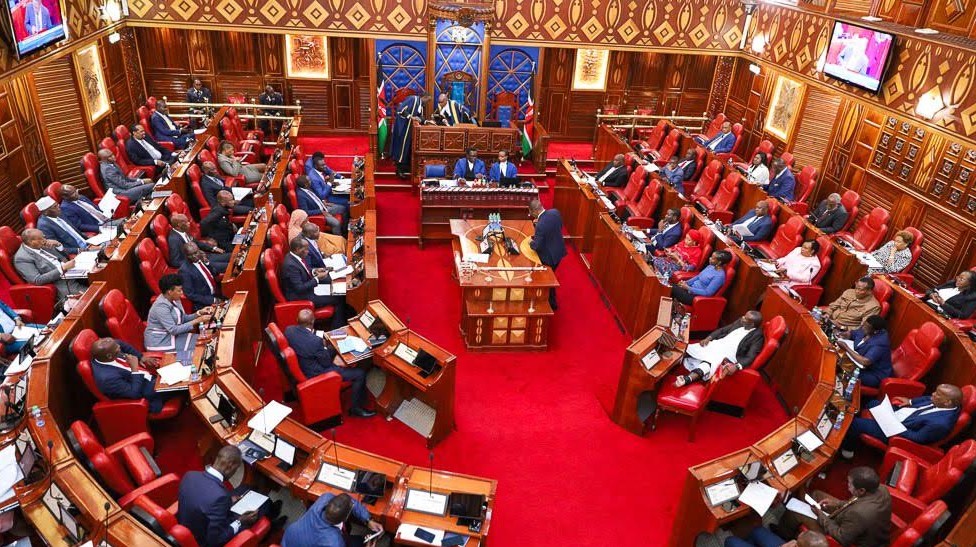Counties diverting development funds to bloated payrolls, report reveals

Kisii County leads in non-compliance, with a wage bill standing at 60 per cent. Mombasa follows with 57 per cent, while Nyeri, Elgeyo Marakwet and Laikipia all recorded 55 per cent.
A report compiled from the Auditor General and the Controller of Budget has revealed that most counties are spending more than half their revenue on wages, breaching the law and limiting development spending.
The County Public Accounts Committee, chaired by Senator Moses Kajwang’, says the trend of spending beyond the 35 per cent legal cap set by the Public Finance Management Act 2012 is worrying.
More To Read
- Audit reveals Sh955 million collected by hospitals not deposited in county accounts
- MPs summon Auditor General over suspected flawed audit reports
- Millions at risk as Agricultural Finance Corporation fails to recover loans, manage payroll
- Auditor General uncovers Sh3.4 billion manual salary payments in counties
- Auditor General flags massive procurement violations across 32 counties
- Counties given until Friday to submit pending bills clearance plans, CoB warns
The law requires that county expenditure on salaries and allowances for both the Executive and County Assembly should not exceed 35 per cent of the total revenue.
Yet Kisii County leads in non-compliance, with a wage bill standing at 60 per cent. Mombasa follows with 57 per cent, while Nyeri, Elgeyo Marakwet and Laikipia all recorded 55 per cent.
Murang’a and Homa Bay are also in breach, at 54 per cent and 53 percent respectively. Nyamira and Taita Taveta have also gone past the halfway mark.
More counties, Kisumu, Machakos, Kericho, and Bomet, are also named in the report for spending heavily on salaries.
In contrast, Narok, Nakuru, Kwale, Siaya, and Turkana counties were noted for adhering to the law, maintaining their wage bills within the required threshold.
“Counties that are paying more on salaries and allowances have little left for development, the committee said.
The committee now wants governors to ensure compliance with the Public Finance Management Act and focus on development spending.
In March, the Auditor General exposed widespread payroll fraud in county governments, revealing cases of shared bank accounts, irregular hiring, and payment of salaries through manual systems that allow for manipulation.
This was in relation to the audit, covering the financial year ending June 30, 2024, paints a grim picture of financial mismanagement across multiple counties.
Top Stories Today















































